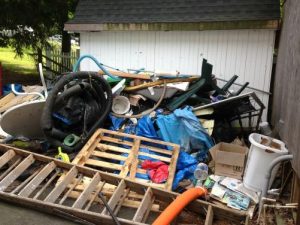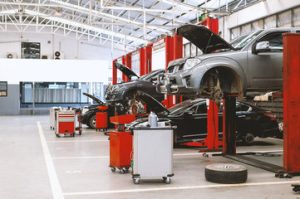Roof repair begins with timely inspection. Small leaks or damaged shingles can escalate quickly. Identifying issues early prevents expensive replacements. Homeowners often overlook minor signs that indicate larger problems.

Weather impacts roofing durability significantly. Sun, rain, wind, and snow gradually wear materials. Extreme conditions accelerate deterioration. Regular maintenance helps withstand these challenges.
Material choice affects repair methods. Asphalt, metal, clay, and composite roofs each require unique approaches. Understanding material properties ensures proper techniques. Incorrect repairs can worsen damage and reduce lifespan.
Safety is paramount during roof repair. Proper equipment and protective gear reduce injury risks. Ladders, harnesses, and stable footing are essential. Neglecting safety can have severe consequences.
Leaks are the most common issue. They often appear around chimneys, vents, and skylights. Water intrusion damages insulation, ceilings, and walls. Prompt attention prevents mold growth and structural decay.
Shingle damage is frequent. Wind, hail, and debris can loosen or crack shingles. Missing shingles expose the roof to further harm. Replacing them restores protection and aesthetics.
Flashing problems contribute to leaks. Metal strips around joints and edges prevent water entry. Corrosion or displacement compromises effectiveness. Repairing or replacing flashing secures vulnerable points.
Roof coatings extend lifespan. Reflective or protective layers shield from UV damage. They reduce thermal stress and energy costs. Proper application enhances durability significantly.
Gutter maintenance supports roof health. Clogged gutters cause water backup and edge damage. Cleaning ensures proper drainage. Healthy gutters protect the roof and foundation alike.
Attic ventilation affects roof longevity. Poor airflow traps heat and moisture. This accelerates material deterioration and increases energy costs. Proper vent placement reduces strain on roofing.
Ice dams pose winter hazards. Frozen water blocks drainage, causing leaks. Timely removal and insulation prevent buildup. Preventive measures save costly repairs in the long run.
Roof sagging signals structural issues. Weakened trusses or supports require professional evaluation. Ignoring sagging can lead to collapse. Early intervention ensures safety and stability.
Moss and algae impact roofing aesthetics and performance. Growth retains moisture, accelerating decay. Cleaning and treatment prevent damage. Treated surfaces stay functional and visually appealing.
Roof sealants address minor cracks and gaps. Flexible sealants prevent water penetration. They complement other repairs and prolong life. Selection of the right product ensures effectiveness.
Emergency repairs are sometimes unavoidable. Storm damage or falling debris requires immediate attention. Temporary fixes prevent further interior damage. Planning for emergencies reduces long-term costs.
Energy efficiency is influenced by roof condition. Damaged roofs reduce insulation performance. Proper repair restores thermal regulation. Homeowners benefit from lower heating and cooling bills.
DIY repairs are possible for minor issues. Small leaks or shingle replacements can be handled carefully. Proper tools and research are essential. Missteps can exacerbate problems and void warranties.
Professional inspections provide thorough assessment. Experts detect hidden damage and structural concerns. They offer repair estimates and long-term solutions. Investing in professional insight avoids surprises.
Roof membranes protect flat or low-slope designs. TPO, EPDM, and modified bitumen prevent water infiltration. Damage requires patching or replacement. Regular checks maintain functional integrity.
Seal cracks around vents and chimneys. Small gaps are common leak sources. Proper sealing restores barrier effectiveness. Maintenance prevents costly structural damage.
Storm damage requires quick assessment. Hail, wind, and heavy rain compromise shingles and flashing. Early repair minimizes interior damage. Insurance documentation benefits from prompt evaluation.
Insulation beneath the roof affects moisture control. Damp insulation reduces effectiveness and promotes mold growth. Replacing or drying insulation restores performance. Proper insulation supports structural health.
Roof decks may require reinforcement. Weak or rotted decking cannot support new shingles safely. Repair or replacement is critical before overlaying materials. Ensuring a stable base is essential for longevity.
Severe leaks need temporary patching. Tarps or sealants protect the home while waiting for permanent repairs. Quick action prevents water damage escalation. Temporary solutions safeguard interiors.
Regular maintenance prolongs lifespan. Annual inspections catch minor issues early. Cleaning debris, trimming overhanging branches, and checking seals help. Maintenance reduces emergency repair frequency.
Chimney crowns prevent water entry. Cracks or deterioration compromise protection. Repair or replace to maintain effectiveness. Well-maintained crowns prevent interior damage.
Skylights are leak-prone areas. Flashing and seals degrade over time. Inspection and repair ensure waterproofing. Properly maintained skylights provide natural light safely.
Roof valleys are vulnerable to water accumulation. Proper installation and cleaning prevent leaks. Damaged underlayment requires attention. Maintaining valleys ensures reliable drainage.
Fastener corrosion causes shingles or panels to loosen. Rusted nails reduce structural integrity. Replacing fasteners secures the roof properly. Attention to detail prevents repeated damage.
Flat roofs need consistent monitoring. Ponding water accelerates material breakdown. Slope correction and drainage installation are effective solutions. Preventive care avoids frequent repairs.
Roof color affects heat absorption. Dark shingles absorb heat, light ones reflect it. Repairs can integrate reflective materials to improve energy efficiency. Thoughtful selection enhances comfort.
Venting pipes and HVAC penetrations are leak-prone. Sealing gaps prevents water infiltration. Flashing and sealant combination ensures durability. Properly maintained penetrations protect interiors.
Roof repair extends property value. Homes with maintained roofs attract buyers and appraisers. Neglected roofs reduce appeal and marketability. Investing in repair is financially prudent.
Preventative coatings reduce wear and weathering. UV-resistant and waterproof options protect surfaces. Applying coatings after cleaning prolongs material life. Long-term maintenance reduces total costs.
Tile roofs require careful handling. Broken or cracked tiles must be replaced individually. Proper alignment ensures waterproofing. Incorrect repairs compromise integrity.
Metal roof repairs require specialized techniques. Rust, dents, and loose panels are common issues. Sealants and fastener replacement restore function. Expertise ensures long-lasting results.
Proper drainage prevents foundation damage. Leaks and overflow affect walls and basements. Roof repair integrates with gutter and downspout maintenance. Effective drainage protects the entire property.
Roof framing may need inspection. Warping or rot affects stability. Reinforcement or replacement supports material above. Solid framing ensures structural safety.
Weatherproof underlayment enhances protection. It acts as a barrier beneath shingles or panels. Damage to underlayment accelerates leaks. Replacement is critical during major repairs.
Ice and snow removal reduces damage. Heavy buildup stresses roof structures. Preventative removal minimizes collapse risk. Safe techniques avoid personal injury.
Routine inspections catch small cracks. Tiny fissures can lead to significant leaks. Sealing prevents expansion. Early intervention is always more cost-effective.
Moisture detection tools improve repair accuracy. Infrared cameras and moisture meters reveal hidden damage. Professionals can locate leaks before visible signs appear. Technology reduces repair guesswork.
Roof repair extends beyond aesthetics. Functional integrity protects the entire home. Neglect increases risk to interiors and structural elements. Proactive attention prevents costly damage.
Roof edges and eaves require careful attention. Overhangs experience weather stress. Repairing damaged edges preserves shingles and fascia. Healthy edges prevent interior leaks.
Ventilation and attic airflow reduce heat stress. Proper airflow prevents warping and moisture buildup. Repairs often integrate improved vent placement. Enhanced ventilation prolongs roof lifespan.
Regular cleaning reduces wear. Leaves, branches, and debris trap moisture. Cleaning prevents rot, corrosion, and moss growth. Clean surfaces maintain longevity and appearance.
Roof repair is an investment in safety and value. Preventing leaks and structural issues protects the property. Timely maintenance avoids emergency costs. Homeowners benefit from durability and aesthetics.





